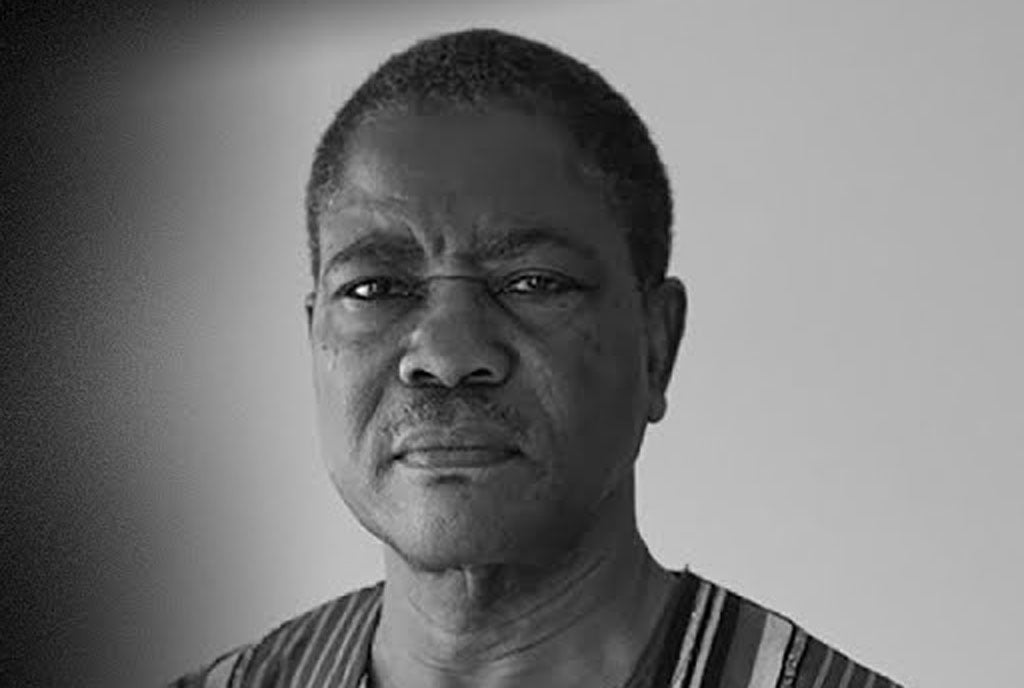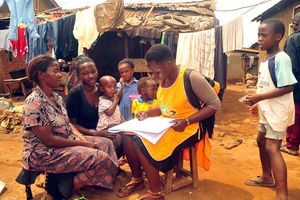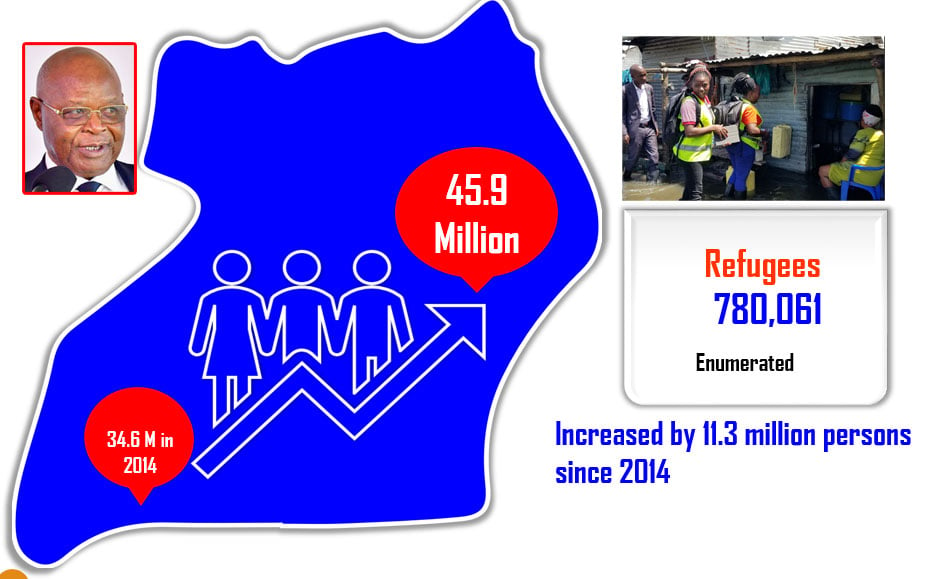
Moses Edward Mikka-Mukasa. PHOTO/FILE/COURTESY
When Uganda conducted its first post-independence national census in 1969, it was a moment of profound significance. For the first time, the people of Uganda, irrespective of race, were counted together as one nation. This census not only unified a population but also laid the statistical foundations that would guide Uganda’s development for decades. At the helm of this groundbreaking endeavour was a young and brilliant statistician, Moses Edward Mikka Mukasa.
Born on February 4, 1942, on the Lake Victoria Island of Koome in Mukono District, Moses Mukasa’s early life was shaped by both the opportunities and challenges of colonial Uganda. His academic prowess earned him a coveted scholarship to King’s College Budo, where he quickly distinguished himself as a leader and athlete.
Mukasa’s time at Budo, where he excelled in cricket and football, and served as head prefect, foreshadowed a career marked by discipline, dedication, and a deep sense of responsibility.
Mukasa’s journey from the classrooms and playing fields of King’s College Budo to the corridors of Uganda’s civil service was nothing short of remarkable. After completing his studies at Makerere University, where he earned a Bachelor’s degree in Economics and Political Studies, while concurrently playing for the university’s football and cricket team, and later for the Uganda national cricket team where he toured East, Central and West Africa, as the first native African wicketkeeper for the national side.
Mukasa furthered his education with a Master’s degree in Economics, Statistics, and Population Studies from the University of Michigan in the US. His academic achievements were a testament to his intellectual rigour, but it was his return to Uganda that would set the stage for his most significant contributions.
Enter the 1969 census
As chief government statistician in the Ministry of Planning and Economic Development, Mukasa led the 1969 census, a task of immense complexity and national importance. This was no ordinary census. It was the first to be conducted after Uganda gained independence in 1962 and included all races in a single, unified count, using indices relevant to Indigenous life.
The results were staggering: Uganda’s population was nearly 1.1 million people more than the previous projections. The implications of this were far-reaching, challenging the assumptions of the colonial-era statistics and providing a more accurate foundation for planning and development.
The success of the 1969 census was a direct result of Mukasa’s leadership and vision. His work not only demonstrated the importance of accurate data in governance, but also underscored the role of statistics in shaping a nation’s future. This census laid the groundwork for future demographic studies and remains a cornerstone of Uganda’s statistical history.
However, the political turbulence of the 1970s forced many Ugandans, including Mukasa, into exile. Settling in Nairobi, Kenya, he did not let exile diminish his sense of duty. Instead, he continued his work in population studies, HIV/Aids, and economic development on an international scale. His expertise was sought after by organisations across Africa, and he became a key figure in evaluating the first African census programme under the United Nations Population Fund (UNFPA) covering the countries of Burkina Faso, Madagascar, Sierra Leone, Senegal, Somalia, and Sudan.

Moses Edward Mikka-Mukasa served as Uganda's chief statistician in the Ministry of Planning and Economic Development, where he led the groundbreaking 1969 census. PHOTO/FILE
Mukasa’s work with UNFPA continued a global career that would see him serve as the UNFPA country director for Zambia, representative for Botswana, Lesotho, Swaziland, and eventually Ghana. His tenure in these roles was characterised by a commitment to improving reproductive health, economic development, and statistical systems in Africa. In Ghana, he also served as the United Nations resident coordinator, a role that placed him at the centre of the UN’s efforts in the country.
During his time in Ghana, Mukasa’s influence extended beyond the UN system. In 1999, he initiated discussions between the Ashanti King, Otumfuo Nana Osei Tutu II, and the Buganda Kingdom, fostering connections that transcended national boundaries and highlighted his ability to bridge cultures and communities.
Life in retirement
Mukasa’s retirement in 2004 did little to slow his contributions to the field. Even as he settled in Philadelphia, Pennsylvania in the US, he continued to work part-time, consult, and volunteer for The Philadelphia Aids Consortium (TPAC) and other non-governmental public health organisations. His death on June 14, marked the end of a life dedicated to service, but his legacy endures in the many systems he helped build and the lives he touched.
Mukasa’s funeral in Philadelphia was a testament to the impact he had on the world. Attended by more than 250 people, the ceremony included a personal tribute from the Ashanti king and remarks from Dr Natalia Kanem, the United Nations under-secretary general and executive director of UNFPA.
Dr Kanem’s words captured the essence of Mukasa’s legacy: “It is said, when the shield wears out, the framework remains. The Mukasa legacy endures up until this day… Mr Mukasa was truly a pioneer, he was a man ahead of his time. Decades before the present-day call of the United Nations, and the Sustainable Development Goals to leave no one behind, Moses understood that for everyone to count, everyone must be counted, and Moses Edward Mikka Mukasa counted for so many… as a true humanitarian who devoted his life to the service of others.”
As his body embarks on its final journey back to Uganda, the nation is reminded of the profound contributions he made to its development. His work laid the statistical foundation for post-independence Uganda and set a standard for excellence in public service. But beyond the numbers and the titles, Mukasa’s legacy is one of dedication to the people of Uganda and Africa. He understood that data was not just about numbers; it was about people, and ensuring that every individual counted was at the heart of his life’s work.
Moses Edward Mikka Mukasa will be buried in Lumuli, Kajjansi, on August 27. His final journey home is a moment for Uganda to reflect on the extraordinary life of a man who, in so many ways, helped to define the nation’s composition and its place in the world.
Mukasa at a glance
Moses Mukasa was Kings College Budo’s head prefect in 1962. His 1962 S6 class were among the first to write A-Level exams in East Africa.
Mukasa studied at Makerere and was deputy chief government statistician in the early 1970s. As chief statistician, later on, he was forced to flee Uganda. He joined the United Nations Population Programme (UNFPA) and was a representative (ambassador) in various countries, including South Africa, Botswana and Zambia.
Mukasa was one of the earliest advocates in the United Nations of using education as a main tool for fighting HIV/Aids. He was one of the UN officials who convinced and then tutored President Museveni in educating Ugandans about HIV/Aids. That Uganda success story then spread and was picked up by other countries around the world.
Mukasa’ wife Sarah is the daughter of the late Mr and Mrs Livingstone Mdigos of Entebbe. He is the father to Aldrine Nsubuga Snr, New Vision football columnist & StarTimes Uganda vice president.


